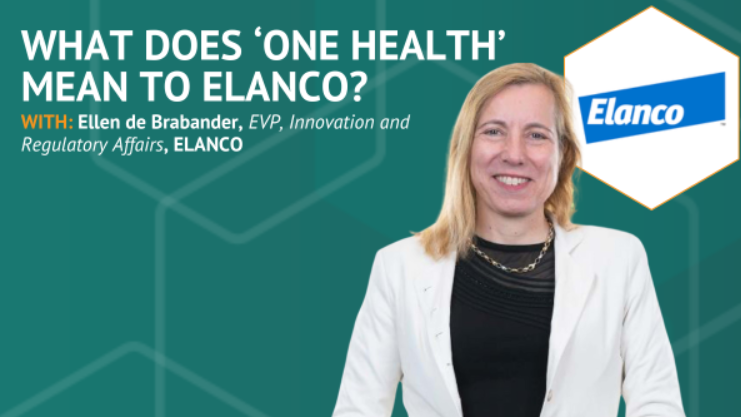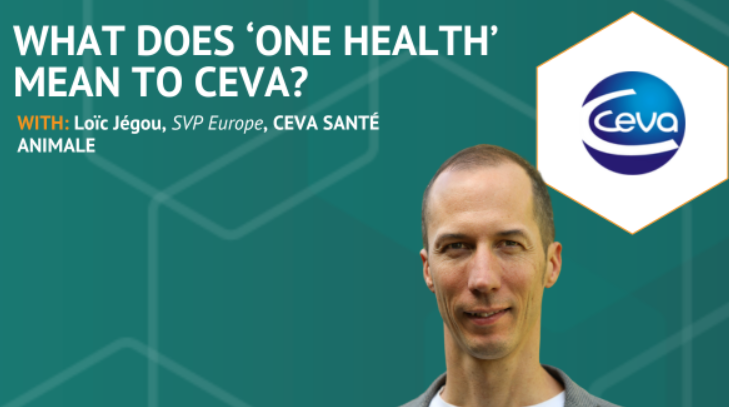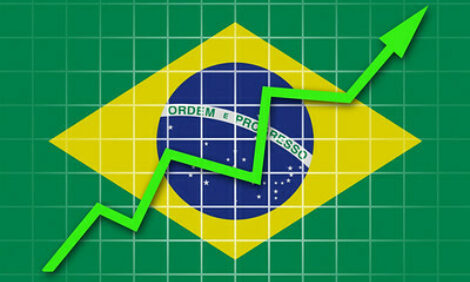



Taking a one health approach with Elanco and Ceva
Interviews with Ellen de Brabander, Elanco, and Loïc Jégou, Ceva Sante animal.The World Health Organization defines One Health as ‘an integrated, unifying approach that aims to sustainably balance and optimize the health of people, animals and ecosystems’.
There is an urgent need to mitigate climate change. There is also an urgent need for more high protein foods to feed growing populations. In a world where these needs are seen as conflicting, a One Health approach highlights how the health of animals, people and planet are directly linked. Therefore cross-sectoral collaboration is vital.
The Animal AgTech Innovation Summit was created to foster this collaboration across all areas of animal agriculture. This year, One Health issues are woven throughout the programme, analysing the ways stakeholders can further align practises and goals to benefit everyone – including everything from feed additives and vaccines to precision farming tools and genetics.
Ahead of the summit (Amsterdam, 9-10 October), we caught up with Ellen de Brabander, ELANCO, and Loïc Jégou, CEVA SANTÉ ANIMAL, to find out what One Health means to them, what their respective companies are doing about it, and why events like Animal AgTech are important to keep driving positive change.
Read on for insights and register now to join them at the summit.
What does One Health mean to Elanco?

[Ellen de Brabander] One Health is recognized by scientific institutions (including the World Health Organization and the Centers for Disease Control and Prevention) as being a preferred approach to solving health issues where the interconnection between human, animal and planet science can help solve complex global health problems. This is seen in our vision – Food and Companionship Enriching Life. From pets to protein – animals have never been more important to our lives, and indeed our health, than they are today.
The United Nations has said that we have until 2030 to reduce climate warming or face irreversible harm. And consumers are paying attention to how our food systems can be part of the solution – 55% say they consider sustainability when grocery shopping. We know that the demand for animal protein is increasing – expected to increase 50% more in the next decade than the last. Yet 60% of the world’s population is getting the wrong nutrition – either too few calories or non-ideal calories.
A true One Health approach will give consumers access to the calories and choice they are asking for in a way that also optimizes the health of our planet. It is more important than ever that we consider innovation that not only makes animal protein more accessible around the dinner table, but doing so in a way that is environmentally conscious and profitable for our farmers.
Elanco believes that livestock sits at the intersection of calories, climate and choice. We are committed to a consistent flow of high-impact innovation that meet the complex demands of today’s consumers – including creating new revenue streams on the farm where farmers can be rewarded for the practices they’re doing to create a more sustainable glass of milk.
Partnership with Purdue University
[Ellen de Brabander] Additionally, for life-changing innovations to move from idea to reality, they must grow in the right environment. In partnership with Purdue University, Elanco has committed to develop a new shared-use facility on three acres in the One Health Innovation District near the future Elanco Global Headquarters in Indianapolis, Indiana.
Our goal is to set Indianapolis apart as an area where innovators will find a vast ecosystem of support, including one of the world’s leading universities, funding, lab space, collaboration with many other innovators and companies and (most significantly) shared technical development and pilot plant facilities to manufacture and scale innovations.
By joining together in partnership with Purdue University, this One Health Innovation District is designed to increase the ability to prevent, predict, detect and respond to health threats.
One Health integrated approaches are widely recognized as the new frontier in biosciences. This is a key milestone in bringing to life our goal of creating an Animal Health Epicenter to reach the world’s animals.
Why are innovative animal health products key to ensuring One Health outcomes in the long term for animal farming?
[Ellen de Brabander] We believe climate neutral dairy farming can be possible this decade, but innovation has to be the driving force behind this.
Elanco is building a leading emissions reduction portfolio across industry sectors and we are partnering with customers and other stakeholders to understand ways our products and services can help meet customer production intensity goals and environmental aspirations.
Already on the market are Experior and Rumensin.
Launched in 2021, Experior is the first U.S. Food and Drug Administration (FDA)-approved product with an environmental claim to help reduce ammonia gas emissions per pound of carcass weight in cattle fed in confinement. And between 2020 – 2022, an estimated 7.2M metric tons of livestock customer emissions (Co2E) were avoided with Rumensin.
Earlier this year, we announced that the FDA has completed its comprehensive, multi-year review of Bovaer® (3-NOP), a first-in-class methane-reducing feed ingredient. Feeding one million cows Bovaer would reduce emissions equivalent to removing more than 285,000 cars from the road for a year.
This is critical innovation at a time where animal, human and environmental health continue to converge at a rapid pace. Bovaer may be one of the most impactful innovations in decades and our newly refined R&D strategy helped us make great progress toward bringing it to the U.S. market in an accelerated timeline.
Why are events like Animal AgTech important for the collective One Health vision?
If we are to use a One Health approach to address health issues where the interconnection between human, animal and plant science can help solve complex global health problems – then it will take all of us coming together. Innovation cannot exist in silos, and we must break down competitive barriers.
The next decade is one of the biggest opportunities for building more resilient and sustainable food systems.
Industry events are critical to allow business leaders, academics and regulators to address the most pressing animal health challenges and showcase the next wave of innovation. We strongly believe high impact innovation in One Health is not a lottery; it is about capable and commited people working together and having quality dialogues.
What does One Health mean to Ceva?

[Loïc Jégou] More than a decade ago, Ceva Santé Animale (Ceva) recognised the major changes occurring in global health issues, so the company adopted a clear vision which can be summarized in one simple sentence: “Together, beyond animal health”.
Driven by this holistic vision, Ceva strives to be more than just a company committed to animal health, but a One Health company that plays an essential role in preserving the health of all: from animals to humans to our planet.
As these three elements are intimately linked, health must be considered in a holistic way. Indeed, the “One Health” concept covers issues such as the fight against zoonoses and antimicrobial resistance, food safety and security, and the essential link between humans and animals.
Preventitive Medicine
[Loïc Jégou] With a focus on preventive medicine to ensure the good health of animals and therefore humans, 54% of Ceva’s R&D investment is now dedicated to vaccines.
Vaccinating animals significantly reduces the prescription of antibiotics, thereby contributing to the fight against antimicrobial resistance. Consequently, antibiotics are reserved for treatment purposes only.
By preventing the spread of zoonotic diseases, the company contributes to protecting human health and making food production safer. Today, Ceva provides vaccines against 19 zoonotic diseases affecting three main species – ruminants, swine and poultry.
Improving the health of people, animals and our environment will only be possible through the sum of multiple collective actions by individuals, companies, countries and organisations, all committed to the same cause.
Why are events like the Animal AgTech Innovation Summit important for connecting the value chain and fostering collaborations with One Health in mind?
[Loïc Jégou] These events allow us to step beyond our traditional domain of animal health and position ourselves as a preferred partner in the innovative agri-food industry.
They bring together stakeholders from various segments of the animal agriculture industry, including farmers, researchers, technology developers, investors, and policymakers. This creates a unique platform for networking, sharing insights, and fostering collaborations that advance the principles of One Health.
The summit provides a forum for discussing the latest advancements in animal health, agriculture technology, and sustainable practices. It is also an opportunity for us to showcase our latest innovations, particularly in vaccines, which will benefit livestock, and beyond.
The Animal AgTech Innovation Summit attracts a diverse, international audience, offering a global perspective on challenges and solutions. This helps ensure that the discussions and collaborations are inclusive of different contexts and experiences, promoting more comprehensive and effective strategies.
Ellen de Brabander, and Loïc Jégou will take to the stage as speakers during the Animal AgTech Innovation Summit in Amsterdam this October 9-10. CEVA SANTÉ ANIMAL is a gold partner of the summit. Explore the summit agenda here and don’t forget to register for your place to join them and senior decision makers across the European animal agriculture ecosystem.









